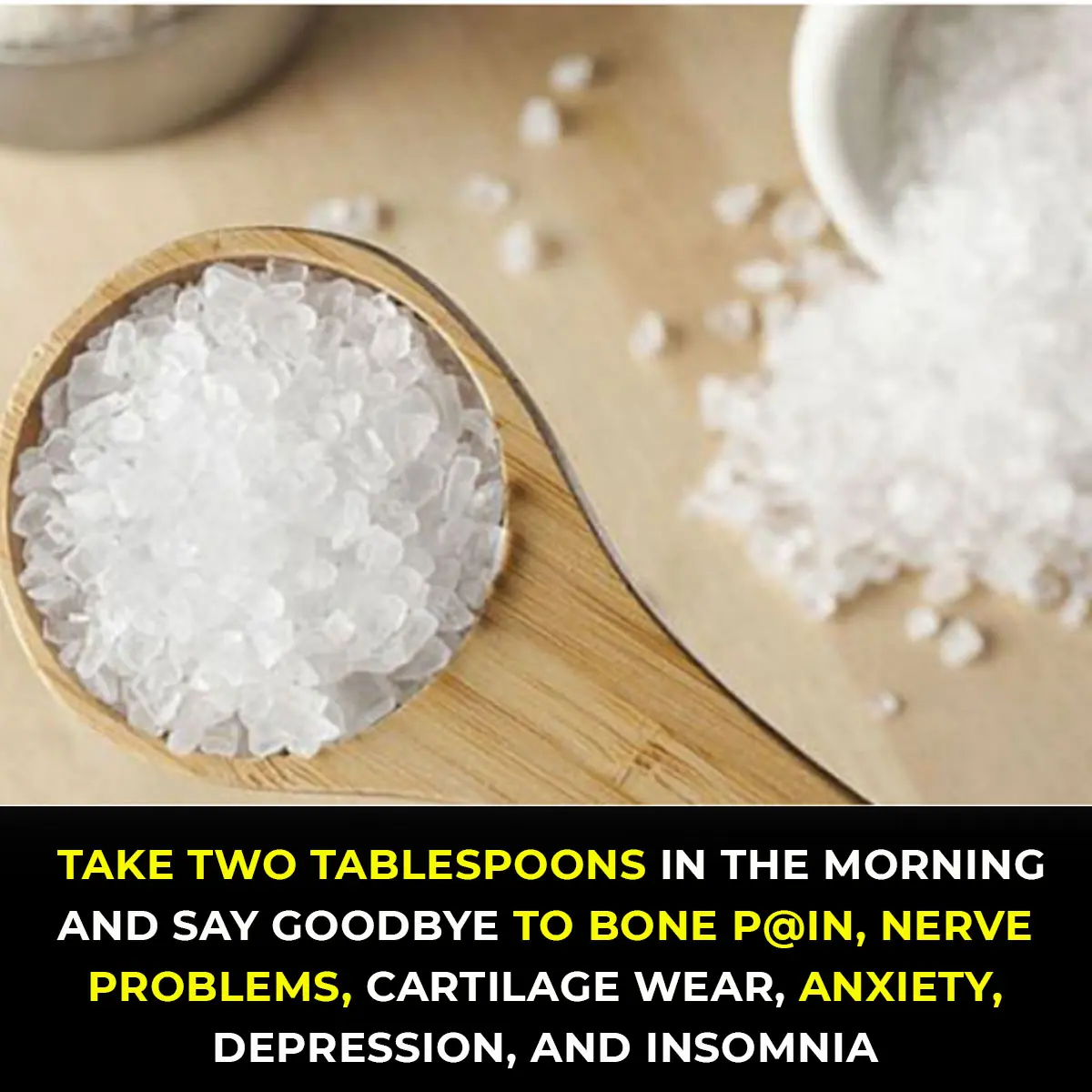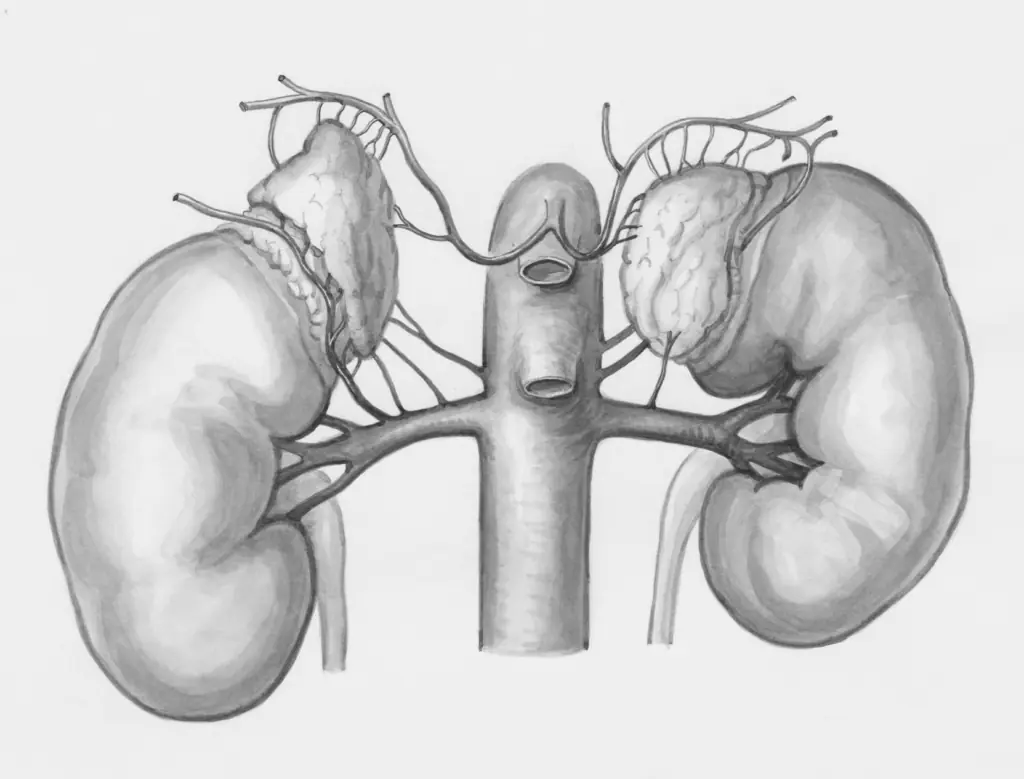
This One Superfood Could Tackle Major Health Issues—Here’s What You Need To Know

Magnesium is a vital mineral in the human body, involved in over 300 enzymatic processes. It plays a key role in maintaining the health of the immune system, bones, muscles, and nerves.
This article explores the proper ways to use magnesium for various health conditions and how it can help manage diabetes, ease bone pain, reduce anxiety and depression, and support digestion, especially in cases of constipation.
1. Osteoporosis and Bone Pain
Magnesium is essential for regulating calcium levels and promoting bone mineralization, both of which are critical for strong, healthy bones. A magnesium deficiency can lead to reduced bone density, an increased risk of fractures, and chronic bone pain.
How to Use Magnesium for Healthy Bones:
-
Recommended Forms: Magnesium glycinate or citrate for better absorption.
-
Adult Dosage: 300–400 mg daily, ideally combined with calcium and vitamin D.
-
Dietary Suggestions: Include seeds (such as sunflower and pumpkin), nuts (like almonds and cashews), and leafy greens (such as spinach and Swiss chard) in your diet.
-
Note: Avoid taking excessive calcium without magnesium, as this could lead to calcium accumulation in the joints and soft tissues.
2. Blood Sugar Management and Diabetes
Magnesium is crucial for insulin sensitivity and glucose metabolism. Studies have shown that low magnesium levels are associated with a higher risk of developing type 2 diabetes.
How to Use Magnesium for Diabetes:
-
Recommended Forms: Magnesium taurate or chloride (taurine also helps with insulin regulation).
-
Dosage: 250–350 mg daily, preferably taken after meals to help minimize blood sugar spikes.
-
Dietary Suggestions: Increase your intake of dark chocolate, beans (such as black beans and lentils), and whole grains (like quinoa and brown rice).
-
Caution: If you are on medications for blood sugar control, consult your doctor to avoid the risk of hypoglycemia.
3. Depression and Anxiety
Magnesium plays a role in regulating neurotransmitters like serotonin and GABA, which affect mood and mental well-being. A magnesium deficiency is often linked to higher levels of stress, irritability, and even depression.
How Magnesium Can Help with Mental Health:
-
Recommended Form: Magnesium threonate, as it easily crosses the blood-brain barrier.
-
Dosage: 200–400 mg daily, ideally taken in the evening to promote relaxation and better sleep.
-
Lifestyle Tips: For added relaxation, consider pairing magnesium with breathing exercises or mindfulness practices.
-
Note: Limit alcohol and caffeine, as they can deplete magnesium levels in the body.
4. Digestive Issues and Constipation
Magnesium acts as an osmotic laxative by drawing water into the intestines, which softens stools and encourages bowel movements. It also helps alleviate constipation by relaxing the muscles in the digestive tract.
How to Use Magnesium for Constipation:
-
Recommended Forms: Magnesium citrate or oxide.
-
Dosage: 400–500 mg at night, only as needed. Start with a lower dosage to assess tolerance.
-
Important: Do not use magnesium laxatives for more than a few consecutive days without consulting a doctor.
-
Dietary Suggestions: Stay hydrated and eat plenty of fiber-rich foods like prunes, vegetables, and oats.
5. Identifying Magnesium Deficiency
Common signs of magnesium deficiency include:
-
Muscle spasms or cramps
-
Low energy or fatigue
-
Migraines or headaches
-
Difficulty sleeping
-
Tingling or numbness
-
Anxiety or mood swings
-
Irregular heartbeat
If you experience several of these symptoms, a simple blood test can confirm a magnesium deficiency.
Precautions and Final Recommendations
-
Always opt for high-quality magnesium supplements that do not contain unnecessary additives.
-
Consult with your healthcare provider before starting any supplement, especially if you are pregnant, breastfeeding, or taking medication.
-
Overuse of magnesium supplements can cause side effects such as abdominal cramps, nausea, and diarrhea.
-
The best approach is always to begin by increasing magnesium through natural food sources.
Conclusion
Magnesium is a powerful mineral that can benefit various aspects of health. By supporting your bones, regulating blood sugar, improving mood, reducing anxiety, and aiding digestion, magnesium can have a long-lasting positive impact on your well-being. Including magnesium-rich foods or well-chosen supplements in your daily routine can improve both your health and quality of life over time.
News in the same category


The Volume Buttons on Your iPhone Have Countless Hidden Features

4 Things You Should Never Say At A Funeral — No Matter What

Mass Panic as ‘New Baba Vanga’ Predicts Majo Disasters Striking in Just One Month

8 Early Warning Signs Of Ovarian Cancer You Shouldn’t Ignore

5 foods you should never keep overnight

Pain ON The Left Side Of The Body: What it could mean?

3 Ways to Prevent Snakes from Entering Your House: Protect Your Family

When a Washing Machine Shows 7kg, 8kg, or 10kg, Is That the Weight of Dry or Wet Clothes?

Don’t wear these two types of slippers on the plane—they can compromise your safety

On Humid Days, Walls Are Prone to Mold and Peeling

You Don’t Need to Mop the Floor All Week, But It Will Still Be Spotless Thanks to These 4 Amazing Tips That Very Few People Know

Do you need to unplug the rice cooker after the rice is cooked?

Effective and simple ways to restore a non-stick pan without needing to replace it

Defrosting Shrimp by Soaking in Water Is a Mistake

Effective tips to kill cockroaches and keep your house clean

Sprinkle a little salt into the door cracks, you will see something special after 5 minutes

If You Keep Waking Up at 3AM, The Universe Might Be Trying to Tell You Something

No Matter How Rich You Are, Never Buy These 4 Things Online
News Post

Male contraceptive pill appears to be safe without side effects in early trials

The Volume Buttons on Your iPhone Have Countless Hidden Features

4 Things You Should Never Say At A Funeral — No Matter What

Mass Panic as ‘New Baba Vanga’ Predicts Majo Disasters Striking in Just One Month

8 Early Warning Signs Of Ovarian Cancer You Shouldn’t Ignore

5 foods you should never keep overnight

Pain ON The Left Side Of The Body: What it could mean?

3 Ways to Prevent Snakes from Entering Your House: Protect Your Family

When a Washing Machine Shows 7kg, 8kg, or 10kg, Is That the Weight of Dry or Wet Clothes?

Don’t wear these two types of slippers on the plane—they can compromise your safety

On Humid Days, Walls Are Prone to Mold and Peeling

You Don’t Need to Mop the Floor All Week, But It Will Still Be Spotless Thanks to These 4 Amazing Tips That Very Few People Know

Do you need to unplug the rice cooker after the rice is cooked?

Effective and simple ways to restore a non-stick pan without needing to replace it

Secret tip: How to clean glossy tiles at home without spending a penny

Over 200 People Are Killed By The “World’s Deadliest Food” Every Year, But Almost 500 Million People Still Eat It

Nighttime Leg Cramps: When to Worry and Seek Medical Help

Why Kidney Failure Is Striking The Young—And How To Stop It
